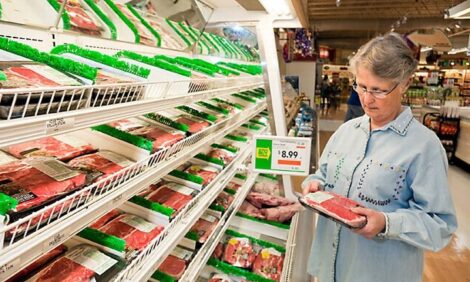



Dairy Farms Caught in Canadian Trade Dispute Find Milk Buyers
US - Only days before they would have to possibly shut down, all but a handful of the Wisconsin dairy farms caught up in a trade dispute with Canada may have found buyers for their milk.The farms range in size from about 80 to 3,000 cows. Some are between Whitewater and Madison, while others are near Fond du Lac and Sheboygan.
Grassland Dairy Products of Greenwood said it’s dropping the farms, effective Monday (1 May) because the company lost millions of dollars in business when Canada changed its milk pricing practices to favor Canadian farmers to the detriment of US milk producers.
State and federal lawmakers in the US have urgently sought short-term solutions along with an investigation of trade pacts with Canada. The situation has drawn the attention of President Donald Trump.
Thursday, dairy farmers close to the situation said nearly all of the 58 farms under contract with Grassland will have milk buyers by the end of the week, even if the agreements are short-term.
It keeps the farms from having to dump their milk starting Monday. The farms' cows have to be milked several times a day, 365 days a year, whether or not there’s a buyer for the product.
Some of the contracts have come from Mullins Cheese, Dairy Farmers of America and Rolling Hills Cooperative.
"There’s still more work to be done, but things are looking positive," said Carrie Mess, a dairy farmer from Watertown who has worked with the affected farms to find milk buyers.
Some of the farms won't get the milk price they’ve received from Grassland, but it’s enough to keep them in business.
"We have confirmed that as of this morning, 19 of the 23 farmers in our cooperative who were affected will have buyers for their milk on (Monday) for at least the short term. We are still working to confirm the status of the remaining farmers," said John Pagel, president of the Dairy Business Milk Marketing Cooperative, based in Green Bay.
"What we’re hearing elsewhere is that the majority of farmers have found buyers, too," Mr Pagel said.
"So, overall the news is positive. But until each and every one of these farmers has a buyer for their milk come Monday — and long-term solutions are in place — the work is not done," he added.
Farm groups have rallied to find buyers for the displaced milk, estimated at 1 million pounds a day or about 100,000 gallons.
In some cases, assistance has come from other farmers who know they could face a similar dilemma because of a milk surplus across the country and around the world.
As of Friday, 21 April, about 40 of the farms under contract with Grassland still didn’t have a milk buyer starting Monday, 24 April.
“This is devastating to the farmers, and it’s been really heartbreaking for us,” said Daniel Smith who oversees the Wisconsin Farm Center at the state Department of Agriculture, Trade and Consumer Protection.
State officials would not confirm that only a handful of the farms still lacked a milk buyer but said the situation was changing “hour by hour" and they were hopeful it would be resolved.
Most milk processing plants are running at full capacity and aren’t accepting more farms. If they did, some would be forced to sell the additional milk they processed at a loss — or dump it.
“It’s frustrating for everybody. The timing of this couldn’t be any worse,” said Mike North, president of the Dairy Business Association, based in Green Bay. “Everybody is working to try and get some solutions. But the clock is ticking louder by the second.”
TheCattleSite News Desk


